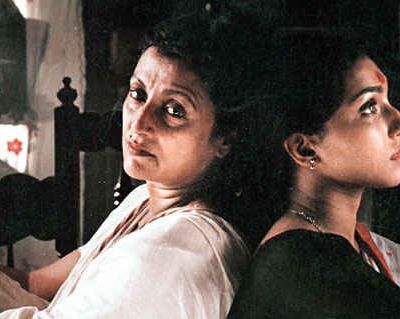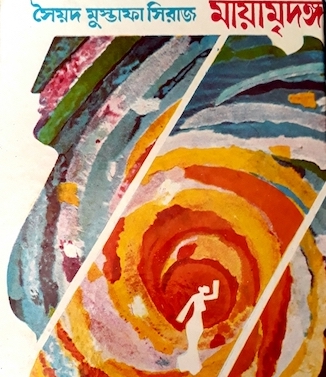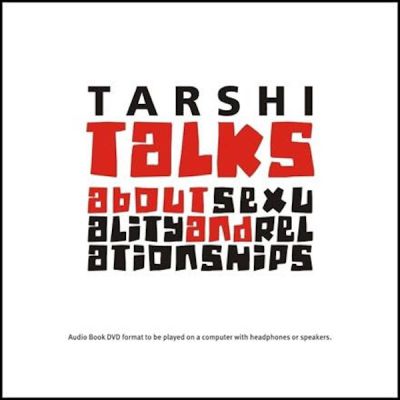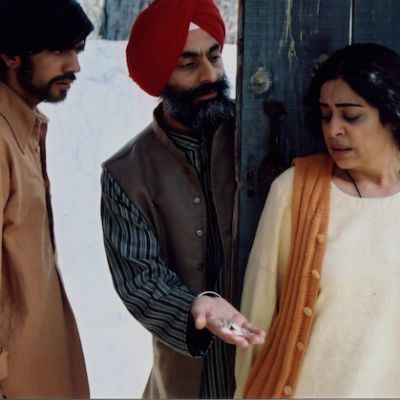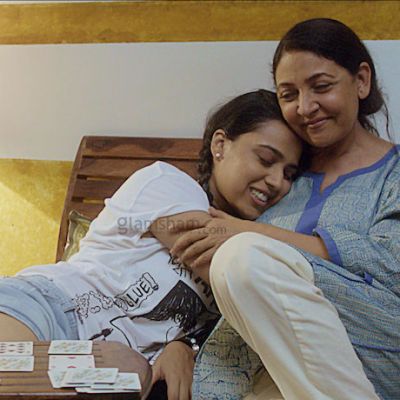Review
Paromitar Ek Din is a study in female subjectivity – it is essentially a woman telling the story (or rather, recollecting the story) of another woman, and reflecting upon themes of sexuality, oppression, and gender-based discrimination.
Over time, I realised that ‘home’ meant not just the physical and emotional space occupied by my parents, but also a set of practices or strictures, mostly dictated by parents, related to gender roles, religion, sex, marriage, friendships and ‘appropriate’ behaviour.
The very last lines of a film are the voice-over by the hero, “Someday I will convince her to… marry me”….
Five sex workers – four women and one man – along with the filmmaker/narrator embark on a journey of storytelling….
The women in Parched (2015) are sitting and chatting, seemingly free from their daily oppression for once, when a cell…
The Church says: the body is a sin Science says: the body is a machine Advertising says: the body is…
Kamal Hassan has come to be quite a literal poster boy of all anti-caste memes lately. To reminisce about the…
My formative years in BDSM[1]were heavily influenced by a series of books called Chronicles of Gor written by an author…
Māyā Mridanga infinitely problematises the nature vs. nurture debate that is central to sexuality studies. The novel seems to suggest that a certain kind of male body – feminine, smooth, shapely – is the ideal raw material for making a chhokra out of a biological man. Ustaad Jhaksa, whose life the novel documents[2], repeatedly emphasises on this act of nurturing, moulding and pruning of a feminine male body for which he has fatherly affection as well as a lover’s lust.
TARSHI Talks on Sexuality and Relationships is such a welcome sea of information about sexes, sex, sexuality and relationships in an objective and ‘non-taboo’ manner.
Who fights, who flees and who flows with the tide? Branching off from the community, with all the comforts that it offers, can become a true test of character.This year marks the 70th anniversary of the Partition of India – a significant chapter in our history when millions of people were faced with this dilemma.
Online dating websites and apps are one of those technological innovations that people did not think would ever do well….
For many of us careening to adulthood at the time, these films pushed us to confront our own biases. They asked us to stand in Diane and Mansi’s shoes and ask ourselves, what would we have done? Would we spend one night with a man (Robert Redford, no less) for a million dollars? Would we be able to resist the option that opened up to Mansi? And the truth of it was that this was a difficult question to answer.
In 1994, Delhi boy Nishit Saran left home to study filmmaking at Harvard University. By 1999 he had made the searing Summer in My Veins, capturing on camera his own trepidation at coming out to his mother. It is an important, lovely and poignant film.
Reviewing three films (or the subplots of three films) to see how subplots show that marriage isn’t a destination or a single story that begins and ends in the ‘happily ever after’.

